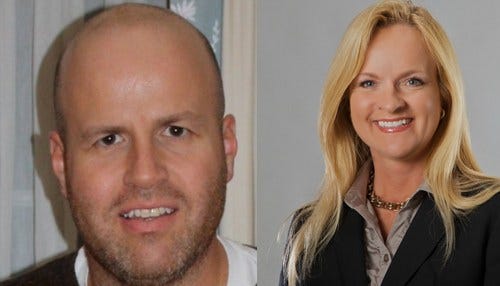Today’s Workplace: Thriving in Your First 90 Days

Subscriber Benefit
As a subscriber you can listen to articles at work, in the car, or while you work out. Subscribe NowAs awkward and difficult as starting a new job can be, the flip side is a clean slate. What are you going to do with such an opportunity? How can you make this less overwhelming? Where do you start?
Start with the environment. Observe and listen to it. Don’t judge it – not publicly anyway. Yes, you were probably hired to tell them what you think. But, try to minimize the out-loud thinking during the first three months. Your observations are valuable to the organization and to you.
You were hired for a variety of reasons. Your management liked you and the way you handled yourself during the interview process. They anticipated that you’d be a good fit for the position and organization. Be yourself but reserved. In fact, before you settle in to Work You mode – be more Interview You mode in this first ninety days.
Build Bridges Fast
What about your new colleagues? Make understanding the office dynamics a priority. Of course there will be some challenging personalities; your job is to be a smiling, listening human bridge—a bridge to everyone. What if you could be the link where even people who seem to not like one another—like you? What you accomplish depends in large part on the contributions and support of others. Do your best to build the team and be the positive example.
Bring energy, intention and make every interaction count. Focus on your reputation from day one. You want a reputation as a professional who brings strong capabilities, a unique perspective and valuable qualities and traits to the position. You have a clean slate remember?
Be a Student of History
Learn what was and wasn’t appreciated about your predecessor. Of course, do what they did well and learn from their mishaps because you will be made aware of them. Now focus on being a positive force and avoiding any negativity.
This honeymoon phase needs to be marked with intention and positivity in the midst of things you did not anticipate during your interview phase. The real world always surfaces. Be prepared to manage it and how you position yourself in this new role.
Be Prepared to Adapt
Meet with your management and understand their expectations for you. Discover who the key players are and what’s required to get things done. Understand the unspoken protocol and create the alliances that enable you to accomplish work and build the team. Learn about your manager’s communication style and preferences and adapt your behavior to make your relationship with them effective. Your contributions and how you are perceived will be impacted by your ability to adapt. Be the professional who proactively adapts to the preferences of others to build relationships and shorten the time needed to realize goals.
When In A Meeting? Remember Social Media.
There you are in a meeting. Someone asks your thoughts. Do this – remember social media, specifically Facebook and the comments. Someone always throws something out there. Subsequently, the first few responders always get pulled in to the issue, polarize it more, complain, pile on and throw out rhetorical questions—not you. You bring clarity and a high road response to the discussion not a reaction.
Own It! Take Charge of Your Professional Development
Remember, Interview You and Work You would seem to recognize one another in the mirror. They look and sound similar. We are talking about your work persona – Work You. Who are you? Who are you going to be? What is your resume going to look like in five years?
Now is the time to consider the hyphen on your resume that marks your time with this new organization. Approach this role with purpose and build from this place of punctuation. A career “punctuated” with intentionality and ninety days where you set the stage for your reputation at this company and for your future.
Getting off to a good start takes resolve, planning, observation and doing. During this time be particularly proactive about your development and note the lessons daily. Connect with your coach or mentor, one not associated with the organization, and review what you learn objectively and discuss how you should approach the weeks ahead.
The first ninety days are important but your professional development is critical to the life of your career, not just the job you’re in. Decide how you’ll approach your role and put forth the effort to ensure you’re an obvious choice for even greater opportunities.
Andy Gregory is founder of recruiting firm CGP Network. Tuesday Strong is founder of Strong Performance Management LLC.
